How AI Is Changing Customer Engagement in 2025: 5 Trends and What to Do About Them
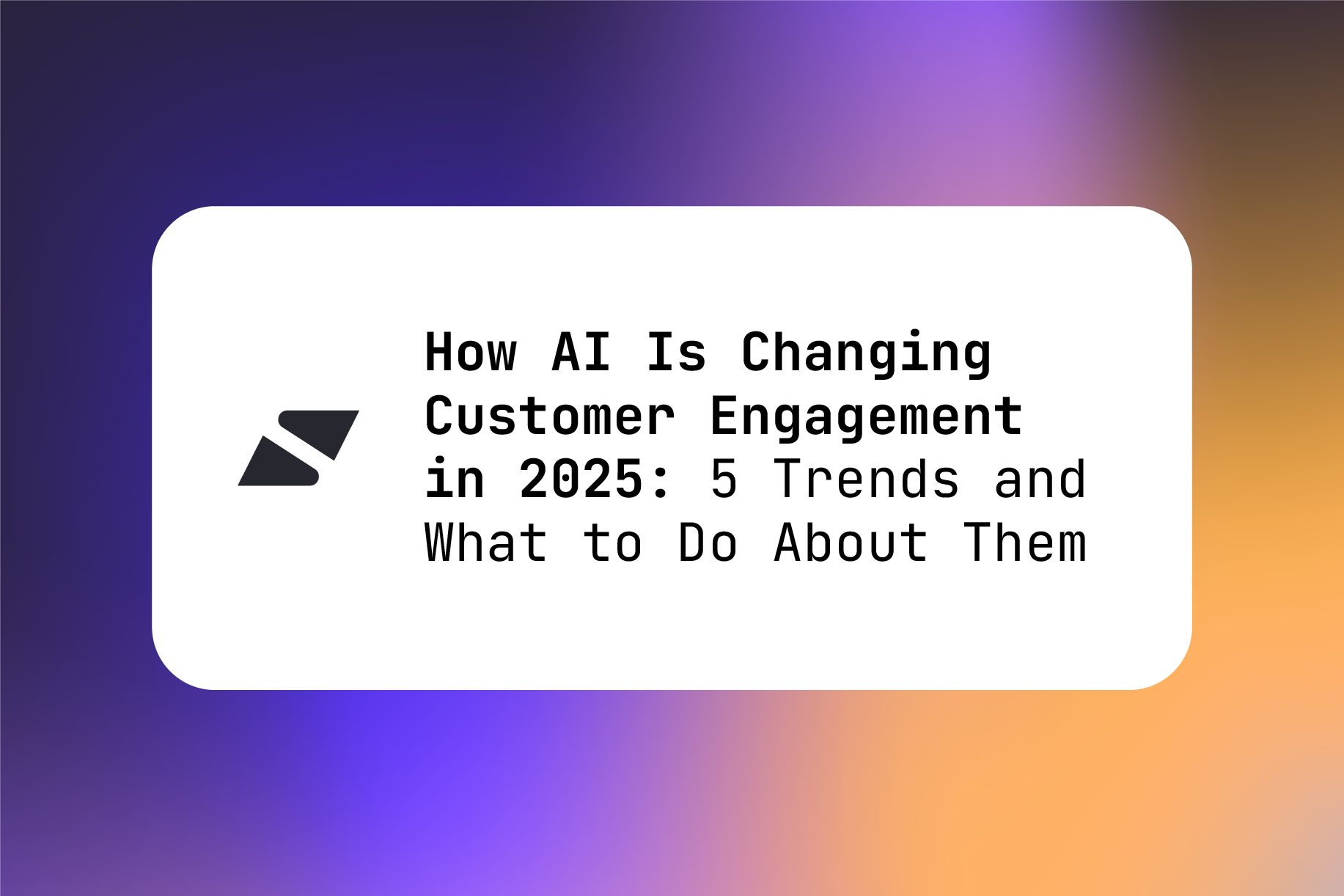
The digital landscape is undergoing its most dramatic transformation since the rise of the Internet. Traditional search behavior and customer engagement strategies are being disrupted by generative AI tools and conversational interfaces. Below are five AI‑powered trends shaping customer behavior in 2025, and actionable strategies for businesses in sports, entertainment, and tourism to stay ahead.
Trend 1: Generative AI Emerges Alongside Traditional Search
What’s Happening
Generative AI tools like ChatGPT, Gemini, and Perplexity are quickly gaining traction as discovery engines. In 2024, around 15 million adults in the United States claimed to have used generative artificial intelligence as their primary tool for online search, and this number is expected to jump to 36 million in just four years.
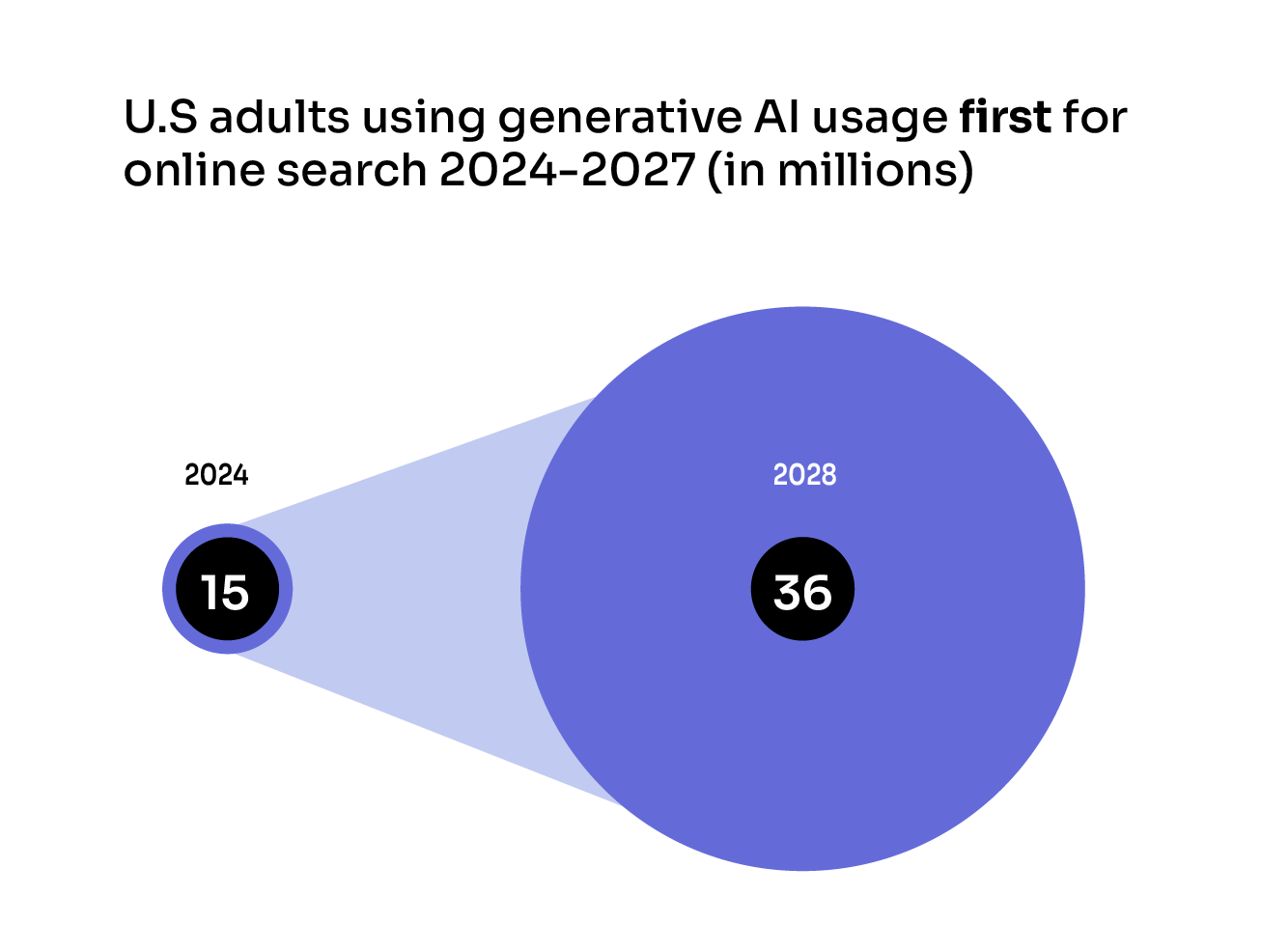
Additionally, the presence of Google AI Overviews has led to a noticeable drop in CTR for many websites. Today, Google’s AI Overviews appear in about 18% of search results, and this number grows faster each day. These AI summaries change how users behave: according to multiple reports, organic click-through rates drop up to 35% when AI Overviews show up.
Why It Matters
Even if users aren’t leaving Google, they may never reach your site. Visibility now depends on being cited inside AI-generated answers, both on traditional search sites as well as generative AI platforms.
What You Can Do
Start building AI-first content strategies to position your brand ahead of an even bigger shift in user behavior.
- Add structured metadata (like FAQPage or HowTo schema) to your content so AI tools and Google Overviews can easily pull and display your answers.
- Write in plain language. Google & Gen AI tools prefer clear, simple language. Use short paragraphs, no jargon, and active voice.
- Align your web content and AI agent language to reinforce key messaging, boosting chances of citation.
Trend 2: Customer Funnels Become Shorter and Smarter
What’s Happening
One in 10 U.S. internet users now turn to generative AI first for online search. Instead of starting broad and clicking through multiple websites, users now find quick answers directly from AI tools or AI Overviews on search engines. This means fewer clicks, but more intentional ones. Businesses are seeing a big jump in traffic coming from AI-driven referrals. For instance, between September 2024 and February 2025, referral traffic from ChatGPT rose by 123%. And when users do land on a site, it’s often because they’re further along in their journey and ready to take action.
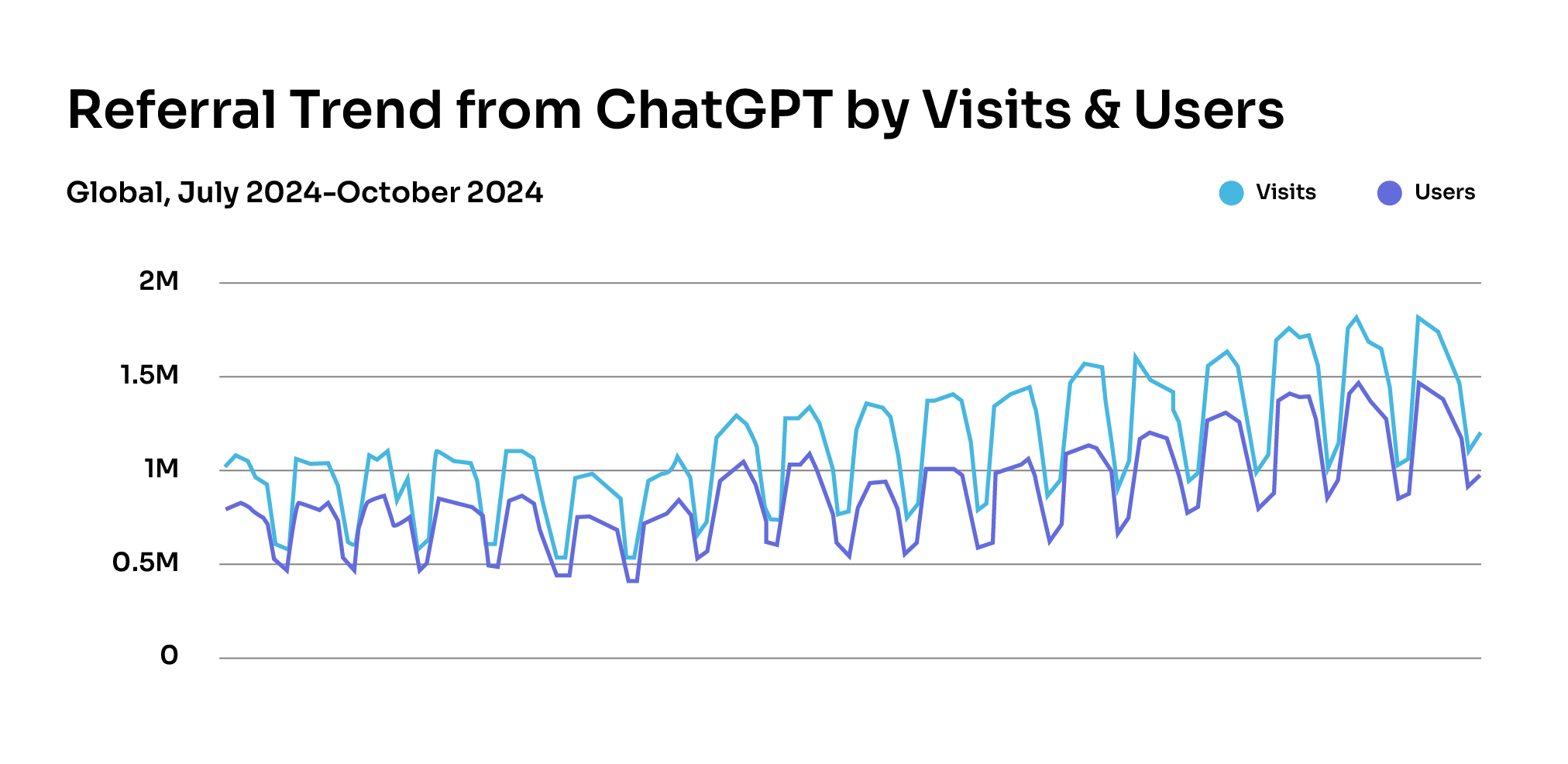
Why It Matters
Customers are arriving later in the funnel, with clearer intent to book, buy, or decide. That’s why your digital presence, especially your website, must be ready to capture action, not just attention.
What You Can Do
- Optimize your web & blog content with long-tail keywords to rank on featured snippets and AI Overviews
- Use structured formatting to improve readability: clear headings, short paragraphs, bold font, and numbered lists.
- Add user-friendly calls-to-action, embedded tools, or AI agents to guide users through the funnel once they land on your site.
- Identify where high-intent traffic comes from (AI tools, links, QR codes) and ensure those pages are optimized for action.
Trend 3: AI Agents Are Becoming Revenue-Driving Assistants
What’s Happening
By 2029, agentic AI is predicted to autonomously resolve 80% of common customer service issues while directly contributing to revenue growth. AI agents are no longer just built for top-of-funnel awareness; they’re now expected to help users take action. More and more companies implementing gen AI for customer operations are doing so specifically to boost conversion and retention, not just deflect inquiries.
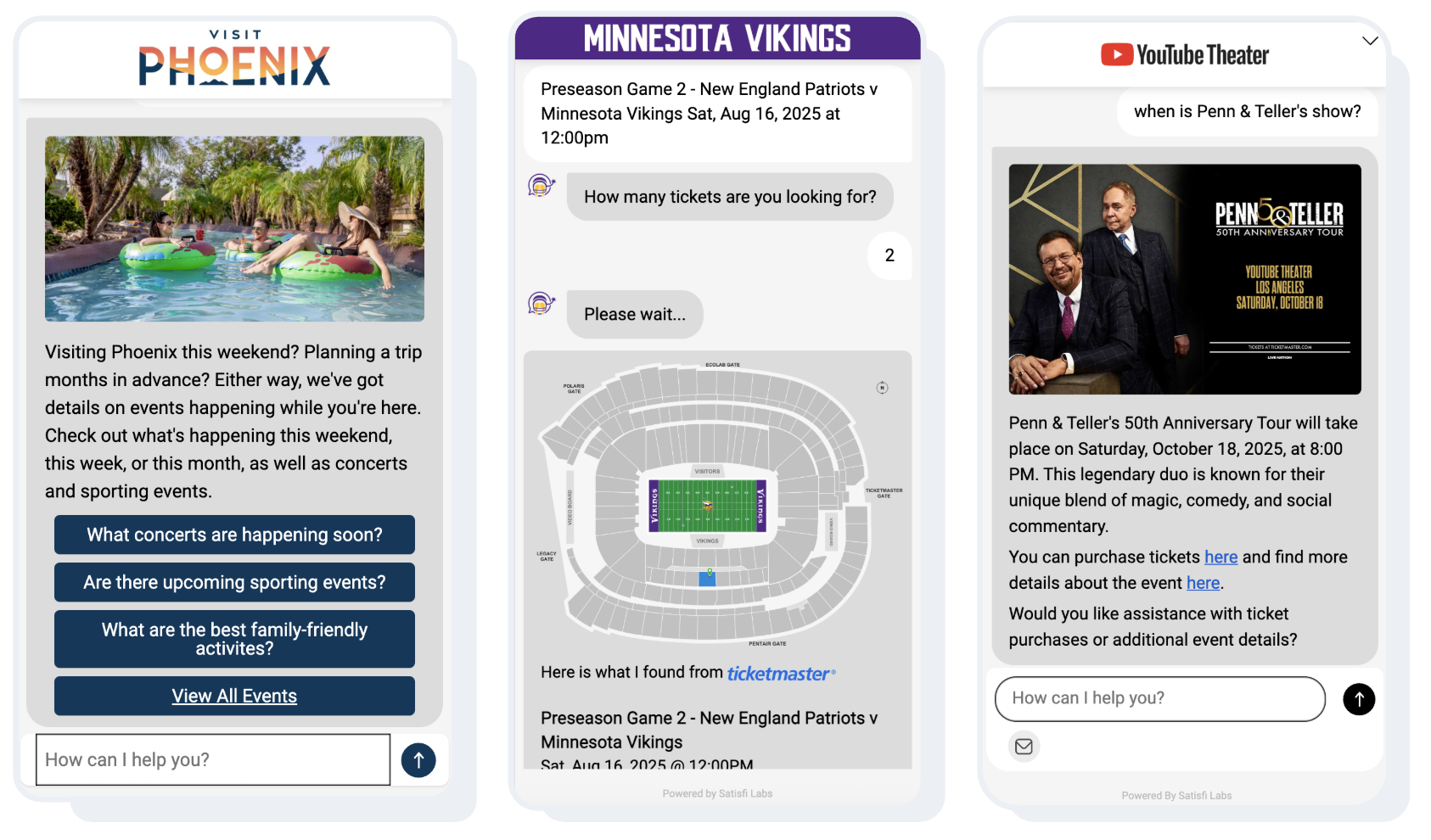
Why It Matters
This marks a major evolution from static websites to intelligent, always-on revenue-driving assistants. Businesses adopting this technology are seeing customer interactions shift from support moments to sales opportunities, where AI agents guide users to complete transactions, assist with bookings, upsell, and hand off complex requests to live agents.
What You Can Do
Build action-oriented AI agents that can handle bookings, sales, or upgrades directly in chat.
- Create goal-based conversational flows that mimic how users explore and buy on your site.
- Ensure your agents are integrated with tools that allow for escalation, personalization, and cross-platform commerce execution.
Trend 4: Conversational Data Is the New Goldmine
What’s Happening
Marketers are increasingly turning to AI for insights, not just content creation. In fact, data analysis & market research now tops the list of generative AI use cases. One of the richest sources? AI agent chat transcripts. These conversations reveal exactly what YOUR consumers are asking, helping brands move from guessing keywords to understanding real intent. This shift fuels Generative Engine Optimization (GEO): a new strategy focused on getting your content cited by AI tools like ChatGPT or Gemini, where traditional blue links are being replaced by direct conversational answers.
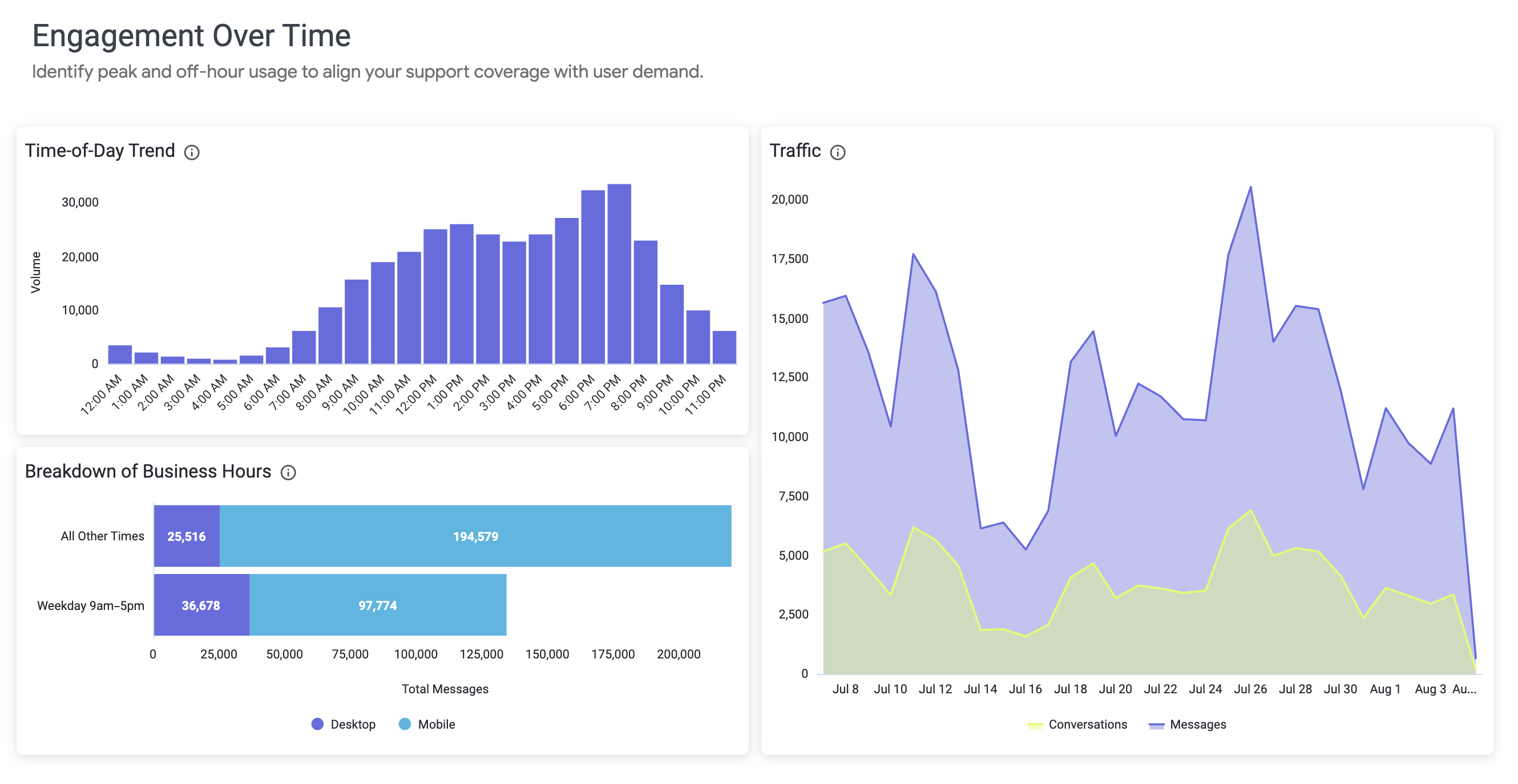
Why It Matters
Your chat transcripts contain unfiltered customer insights that regular site metrics, surveys and focus groups often miss. People ask AI agents questions they'd actually like to learn more about your business. This raw conversational data reveals content gaps, emerging needs, and the exact language you should use to become more discoverable by gen AI platforms.
What You Can Do
- Analyze what your customers are actually asking during chats to identify content gaps, support needs, or emerging demand.
- Use those insights to create new web content and conversational flows for your digital channels to answer faster and smarter.
- Write content that clearly and concisely answers key questions so it’s more likely to be selected by generative AI platforms when responding to users and citing your brand.
Trend 5: Trust and Safety Are Critical for GenAI Growth
What’s Happening
User trust in AI is steadily increasing, evidenced by declining click-through rates as people find AI-generated answers satisfactory. However, security risks remain top concerns among users and businesses, with 51% citing cybersecurity risks, 50% worried about inaccuracies, and 43% concerned about personal privacy.
Why It Matters
While users start to trust AI responses, brands face the challenge of controlling what LLMs ingest and use to generate answers about their companies. Organizations must develop strategies to manage AI-related exposures through mitigation and robust governance, particularly as AI systems become intermediaries between brands and consumers.
What You Can Do
- Regularly audit how AI platforms cite your brand and establish processes to correct inaccuracies or misrepresentations.
- Work with AI providers who prioritize security, transparency, and brand safety to protect your content and customer interactions.
- Use Model Context Protocol standards to maintain control over your brand messaging and ensure accurate attribution in AI responses.
Why This Matters for Your Brand Today
Brands that fail to adapt to AI-first discovery, engagement, and conversion risk losing visibility and revenue. At the same time, forward-thinking organizations in sports, entertainment, and tourism can seize this disruption as an advantage, with:
- Chat agents built to convert intent into action
- Insights extracted directly from real chat data
- Compliance and safety baked into every interaction
Book a demo today to see how AI agents can turn conversations into conversions for your business.

